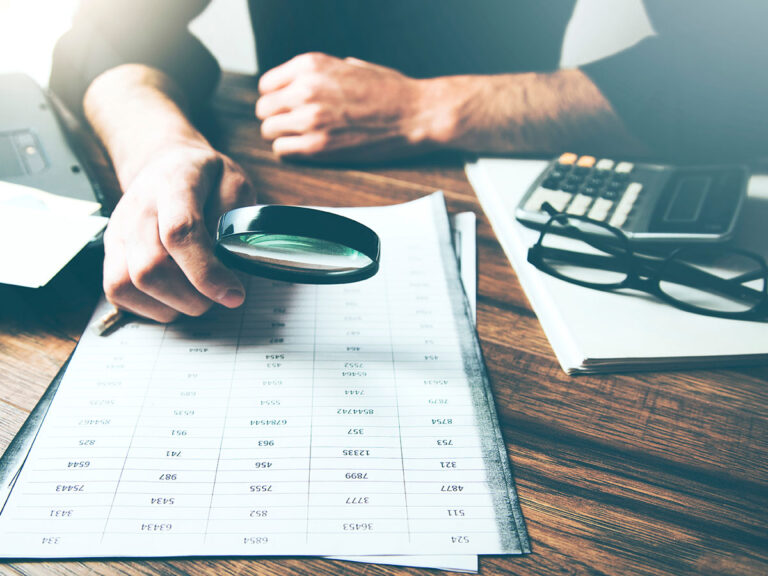There are few five letter words feared by small business owners as much as “audit”. Especially for business owners who have been careful in their processes, recording all sales, logging everything, and maybe occasionally forgetting to document something, it’s frustrating and terrifying to get that notice.
But with the right preparation, and a keen understanding of why sales tax and use tax audits occur, and how to prepare for and address them, you can tackle the issue with hopefully a bit less stress. While avoiding a sales tax audit completely is ideal, having a good plan in place can help if one ever arises.
Why Are You Being Audited?
This is the big question – what exactly triggers a sales tax audit in the first place. As referenced in our recent article on avoiding an audit, there are a lot of factors – some in your control and some not:
- Industry – Certain industries are audited more often than others, and it can vary depending on the state.
- A Vendor or Supplier is Audited – While outside your control, the behavior of someone you work with can trigger an audit, especially if they have been audited and are found to be out of compliance.
- Review of Records – There are several triggers when reviewing your records that could lead to an audit. With more advanced technology, computers can analyze factors like perceived physical location, the format and frequency of your records, being late in your filing and other red flags that might lead to an audit.
- Prior Productive Status – Most states will evaluate your sales tax liability year over year. If your account yields an adjustment of more than a certain amount from prior audits, you’re likely to be audited again in the future.
- Business Format – Sole proprietors are audited more frequently than other business types, so it’s recommended that, if you are being audited regularly, you consider forming a corporation or limited liability company.
- Randomness – While there are some companies that undergo audits regularly and must always be ready for them, others are selected at random. It’s difficult to know when or why this happens.
Of the above, only one item is truly within your control. In many industries and states, an audit is inevitable, so the best thing you can do is prepare for it and have the right records and processes in place to ensure you aren’t found out of compliance.
What to Do After Being Notified
If you’ve been notified of an impending audit, there are several steps you should take immediately, including:
- Gathering Your Records – Start by collecting your records so they are in hand when the time for your audit arrives. State auditors will provide a list of items they need in your notice, but common records include a general ledger, sales and purchase journals and invoices, journal entries, depreciation schedules, resale and exemption certificates, federal tax returns, financial statements, shipping documentation, sales and use tax returns, and bank statements.
- Review Your Records – Don’t just collect and wait. Spend time checking your records for accuracy and completeness. Any gaps in the records should be filled before sharing documents with the auditor. This can take time, so don’t procrastinate if you can avoid it.
- Address Systematic Issues – If there are any major changes or issues in your records, now is the time to address them. Information can get lost or improperly formatted when there’s a change in accounting systems, shift in how you maintain your taxes, if records are moved or lost, or if there are electronic records unaccounted for (such as EDI or ERS). The auditor needs to be able to trace and evaluate all records and these types of issues will make that difficult.
Handling the Audit Process
Once an audit is initiated and you’ve started to gather and review your records, take the time to prepare for what the auditor will look for and expect from you. Even if you normally do your taxes yourself, connect with a CPA who can provide support and insight into the process and help you ensure your records are in order.
Some other items to keep in mind include:
- Check if a reverse audit is necessary – Auditors won’t be checking for overpayments, so this may be a good time to ensure you haven’t in fact over paid.
- Identify external representation early – If you suspect you may owe a liability when the audit is completed and want an external representative to assist you, retain their services early to avoid any issues mid-or-post audit.
- Coordinate with the Right Representative – When looking for third party assistance, make sure you hire someone who has background in your industry and with sales tax audits in your location. This will help them identify potential unnecessary requests from the auditor, or issues you may overlook when evaluating your records.
Once you’ve undergone the audit, your auditor will propose an assessment in an exit conference. This may be presented in person or mailed to you, and will include a summary of what the auditor believes you owe the state. As long as you agree, the next step is to pay the liability and close out the audit. If you do not agree, however, additional steps must be made to appeal it, and in most cases you only have 30 days to do so.
The audit process is lengthy, stressful, and can be resource intensive, especially if your records were not as organized and prepared as they needed to be. Whether you’ve just faced an audit, are preparing for one, or are worried about the risk of one in the future, now is the perfect time to step back and evaluate how best to better organize your business processes to better prepare for future audits.






